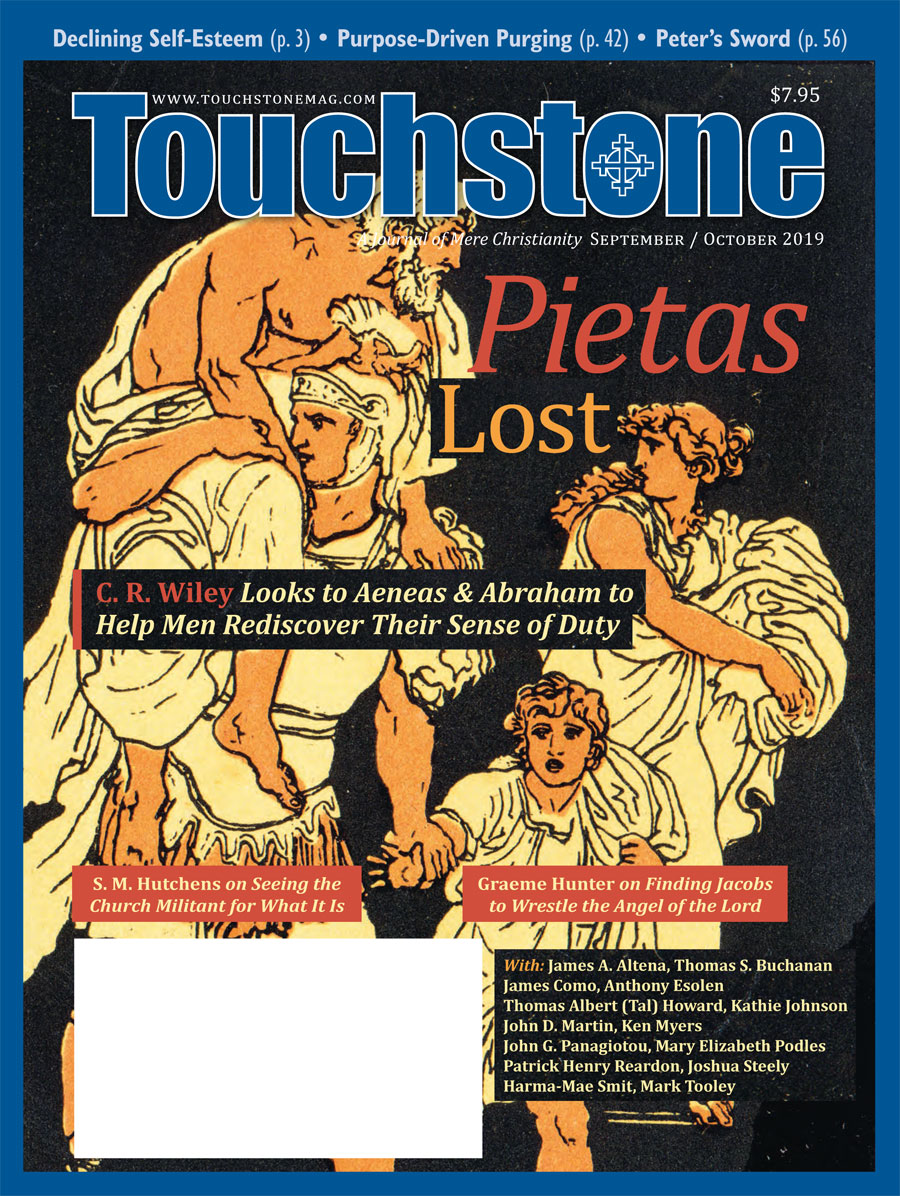View
Newman's Grammar, Lewis's Assent
James Como on the Debatable Conversion of C. S. Lewis
My belief is that C. S. Lewis was not converted—that is, not as he claimed he was—because he had been (albeit unbeknownst to himself) a believer all along. His upbringing, contrary to his judgment, was not "nominally" Christian. Moreover, we learn, from him, that the books he liked most were by Christians, and even Spirits in Bondage—his first published book, a poem cycle written presumably while he was that "blaspheming atheist," as he called himself—displays a theistic pre-disposition, as does the slightly later Dymer (in which a young man escaping from a totalitarian state begets a monster who, after killing Dymer, becomes a god). Thus his older brother (and closest friend), Warren, could honestly say that what felt to the younger man like a conversion was in fact a recovery from "a long mental illness."
That is why Lewis did an unsurprisingly weak job of explaining his change. It's not that he's all over the place but simply that there are so many places.
THIS ARTICLE ONLY AVAILABLE TO SUBSCRIBERS.
FOR QUICK ACCESS:
subscription options
Order
Print/Online Subscription

Get six issues (one year) of Touchstone PLUS full online access including pdf downloads for only $39.95. That's only $3.34 per month!
Order
Online Only
Subscription

Get a one-year full-access subscription to the Touchstone online archives for only $19.95. That's only $1.66 per month!
bulk subscriptions
Order Touchstone subscriptions in bulk and save $10 per sub! Each subscription includes 6 issues of Touchstone plus full online access to touchstonemag.com—including archives, videos, and pdf downloads of recent issues for only $29.95 each! Great for churches or study groups.
Transactions will be processed on a secure server.
more on C. S. Lewis from the online archives
more from the online archives

27.3—May/June 2014
Religious Freedom & Why It Matters
Working in the Spirit of John Leland by Robert P. George
calling all readers
Please Donate
"There are magazines worth reading but few worth saving . . . Touchstone is just such a magazine."
—Alice von Hildebrand
"Here we do not concede one square millimeter of territory to falsehood, folly, contemporary sentimentality, or fashion. We speak the truth, and let God be our judge. . . . Touchstone is the one committedly Christian conservative journal."
—Anthony Esolen, Touchstone senior editor












